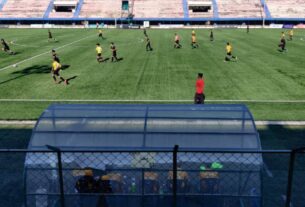Delay in approval of drafted rules highlight the need for integrated transport planning
The Bengaluru Metropolitan Land Transport Authority (BMLTA) bill, passed in December 2022, will be implemented in April 2024. Citizens had been advocating for the creation of BMLTA which is expected to address the city’s traffic congestion and disorganized public transport management.
Netravati MS at Directorate of Urban Land Transport (DULT) said, “the, DULT has drafted operational rules for the BMLTA and forwarded them to the Urban Development Department (UDD). Upon receiving clearance from the UDD and the Department of Parliamentary Affairs and Legislation, a public notification will be issued to solicit feedback and objections, We might receive the approval by the end of April.”
“It will help with planning and executing a Comprehensive Mobility Plan, along with better coordination among agencies. Additionally, they will also study the proposed flyover at Bashyam Circle on Sankey Road.” said the Netravati.
Lalithamba B. V, Governing Council Member and Zonal Leader – Bengaluru NavaNirmana Party (BNP), Bommanahalli said, “The BMLTA is not just a rule; it’s essential for a better transport system in Bengaluru. Problems like bad coordination, no proper paths for pedestrians and cyclists, and disconnected ticketing systems are known. But nobody is fixing them. It’s time for the government to step up and do their job for the city and its people.”
In 2019, the DULT submitted a draft bill for the BMLTA to the state government. After a delay of about three years, the Karnataka legislative assembly passed the BMLTA bill in December 2022. Following this, in January 2023, the state government notified the BMLTA Act after receiving approval from the governor.
The BMLTA will be tasked with regulating the development, operation, maintenance, monitoring, and supervision of urban mobility within the Urban Mobility Region of Bengaluru. Currently, various institutions and agencies, including the Bangalore Development Authority (BDA), Bengaluru Metropolitan Region Development Authority (BMRDA), traffic police, Bangalore Metropolitan Transport Corporation (BMTC), Bruhat Bengaluru Mahanagara Palike (BBMP), Bangalore Metro Rail Corporation Limited (BMRCL), and the transport department, are involved in managing urban mobility in the city.
BMLTA would integrate multiple government agencies and implement initiatives such as the common mobility card and multi-modal transport hubs. According to the act, the government is mandated to establish this authority within six months through a notification.
The BMLTA Act of 2022 acknowledges that the existence of multiple institutions and departments leads to overlapping responsibilities and functions, hindering the planning and implementation of major transportation schemes aimed at improving urban mobility. It highlights that the National Urban Transport Policy provides a framework for integrating the functions of these various entities to enable holistic transport planning.
Satya Arikutharam, an ex-DULT chief transformative officer said, “A year ago, I was hopeful when the BMLTA Bill passed, thinking it would be a big step forward for Bengaluru. But I was wrong. The BMLTA still hasn’t been set up, and it seems like the approval process is stuck in the Urban Development Department.”
Arikutharam further said, “Without a working BMLTA, Bengaluru can’t have a proper plan for urban mobility. For instance, with the Shivaram Karanth layout underway, has anyone considered how it will affect the roads? Has the BMTC been asked about public transport needs? The government should hold the bureaucracy accountable and get things moving.”
Poongothai Paramasivam, BNP member said, “The government is moving forward with significant projects like peripheral roads, tunnel roads, and new layouts, which require substantial investments. However, these plans proceed without the establishment of the BMLTA.”
Paramasivam added, “The absence of an independent authority to oversee integrated transportation in the Bengaluru Metropolitan Area suggests that these ambitious projects, while fragmented, may not effectively address Bengaluru’s well-known traffic problems. Instead, they could potentially worsen congestion and create additional bottlenecks, further exacerbating the city’s traffic challenges.”
Vikram Bhatt, Urban Planner said, “The establishment of the Bengaluru Metropolitan Land Transport Authority is a crucial step towards addressing the city’s complex transportation issues. Integrated planning and coordination is the key to managing urban mobility effectively, especially in a growing metropolis like Bengaluru.”



